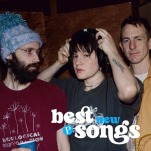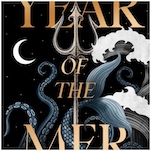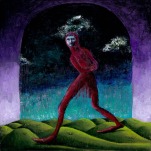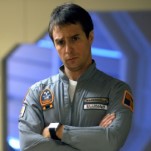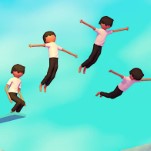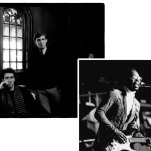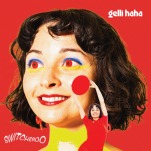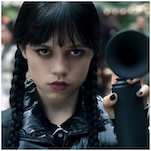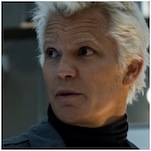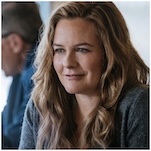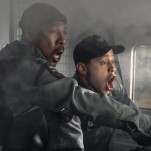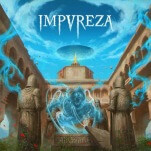Perfume Genius Talks Physicality, Classic Rock and the Power of Contradiction
"When I started singing louder, then America liked my music more."
Photo by Camille Vivier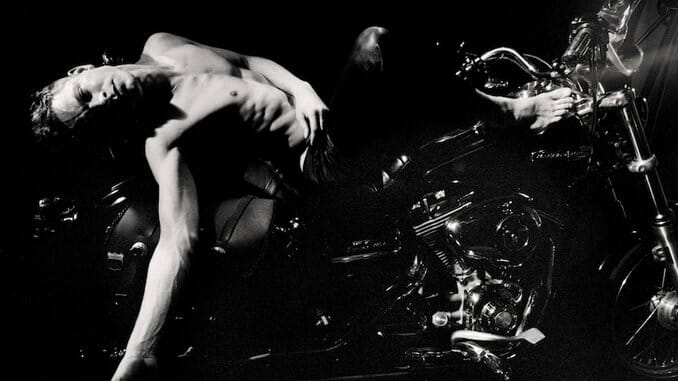
Mike Hadreas has only just woken up when I call him, but he pours his heart into everything he says. Hadreas makes music as Perfume Genius—easily one of the most compelling and boundary-pushing pop artists of the past decade. He’s about to release his fifth album, Set My Heart on Fire Immediately, this Friday (May 15) via Matador Records, and it’s his dreamiest, most carefree record to date. Hadreas began his career with 2010’s Learning, followed by 2012’s Put Your Back N 2 It—two gorgeous piano-driven albums about trauma, addiction and self-acceptance. These records began Hadreas’ never-ending tug between his broken-down, rugged side and his angelic, fully-realized self. Then came 2014’s Too Bright, and it brought a new Hadreas we hadn’t seen before—completely unabashed lyrically and sonically, he sounded bolder and weirder with textured synths and bass amplifying the power and personality of his songs. By the time 2017’s Grammy-nominated No Shape (possibly his greatest work up until that point) arrived, it was no surprise that Hadreas had become a full-fledged star—breaking the chains and unleashing a desire-filled art-pop album to die for.
Hadreas might be forced inside like the rest of us are now, but he hasn’t been sitting still since No Shape. In fact, he was quite literally doing the opposite. Hadreas teamed up with choreographer Kate Wallich and The YC company for a collaborative dance project called “The Sun Still Burns Here,” which toured around the country and featured both Hadreas and his longtime musical and real-life partner Alan Wyffels. Inspired by the transcendent physicality of dance, Hadreas began work on his next album, and that reverence to beings and the material world is all over the LP. Set My Heart On Fire Immediately also contains his most overt rock star moments to date, with “Describe” being its most fuzzy and earth-shaking. While waiting for his next truly great album to drop, Hadreas finds himself listening to music from his teens—Low, Radiohead and Kate Bush—and still talking about music and the feelings behind it like they’re the only things in the world.
Read Paste’s full chat with Hadreas below about dancing, anxieties, This Mortal Coil and why he enjoys being a classic rock trojan horse.
Paste: What kind of headspace were you in when you started writing this new album?
Mike Hadreas: I was in a lot of them I think, and a lot of them were confusing and I didn’t really have a grip on them. I was feeling very emotional. A lot of times when I’m writing I have a distance from feeling or I’m kind of conjuring feelings in this contained way. I look at them and curate them even. But with this record, I was just having them. I had to create the distance somehow. And how I did that was, even if the feeling was confusing, or kind of abstract or felt too close to me, I tried to make it into something physical or storify it, like make the container for it to be a real thing and not just this energy that’s buzzing around. The last record, I just talked about that energy buzzing around. I didn’t try to turn it into anything. I just let it be. This record, that didn’t feel satisfying to me.
When do you feel most connected to people? Is it through dance?
I don’t know. It certainly feels like that right now sometimes. I think because you bring so much shit to all of your relationships. I do anyway. I bring so much old stuff, so much personal stuff that has nothing to do with someone else, but I just put it on them. I’ve been with the same person for a long time and it’s very clear to me that a lot of the problems that I have in our relationship, I would have in any relationship and they’re just things that I carry and I’m so sick of it, honestly. I just get sick of bringing that specific set of things to everything. And with dancing, it’s like you’re with someone and you’re with a body, but a lot of that is removed. Sex is removed and figuring out what to get for dinner is removed. From really tiny things to really big things, it’s kind of absent, but you’re still both there.
There’s a lot of different sounds on this album, but there are quite a few that have this dreamy, blown out guitar sound. Was that just how the songs turned out or was that idea a starting point?
It’s both. With “Describe,” I didn’t intend for that song to be that way when I was writing it, but then in the studio when we started playing, it enhanced my original vision for it, even though it changed the sound of it. I kept the lyric really gentle and soft, but then [producer Blake Mills’] guitar is really loud and relentless and that made my vocal more gentle and his guitar more relentless. A lot of the way that we played this record just felt really immediate. And that’s how I wanted the songs to be, like really intimate and real and close and happening. The way that we recorded so much of it live and in the same room together, that’s a lot of records of course, but for me, usually all the recordings were done in layers and it wasn’t so much of a captured performance in a 360 way. This was a bunch of captured performances quilted together. A lot of them were recorded with all of us doing that at the same time. And that felt like it made a lot of sense with what I was writing about and how I was feeling.
You cited Bruce Springsteen as an influence for No Shape, but there’s obviously plenty of threads here as well, even on the album cover. Was he on the pre-album mood board?
Well, he’s been on there for a while. I thought the last record was going to sound more like that. It just didn’t end up being the case. I mean, I can still hear it because that was my intention. So I still kind of hear it in the songs, but I don’t think anybody else really does. But this record, I feel like you can hear those influences more overtly for sure and they’re intact. I went there harder, that kind of swaggering dude way of being emotional but overly confident, which is so strange to me and always has always been really campy to me. It was really satisfying for me to sing in that way because it’s campy, but also I’m dead serious. I don’t know if they’re aware of how campy they are, but they’re definitely dead serious. I like that combination.
American classic rock is viewed as very traditionally heterosexual. You’re pairing classic rock melodies and sounds with lyrics about queer relationships and intimacy. Do you think there’s power in that contradiction?
There is for me, for sure. It’s very satisfying to me on multiple levels. Part of it in a rebellious way and part of it in just including myself in something I’m not included in, but still resonated with me. I liked that music, but I always felt disconnected from it and I’m like, “Well fuck you, I’m going to include myself.” One time, one of my songs was played in a baseball ad and I like that because…I mean, they just played the piano part, but still that song is pretty heavy and it’s kind of a fucked up song. I like how I’m maybe somehow tricking people into listening to weirder ideas or ideas that they weren’t comfortable with. When I started singing louder, then America liked my music more. I like the idea of like…“Are people going to be more willing to listen to me if I’m presenting in a way that makes more sense, but then I’m still talking and saying things that don’t?”
Could you talk about the backstory of “Some Dream”? It sounds like a really dramatic song, and I was curious if the final album track, “Borrowed Time,” is directly connected to it as well.
They are in a way that is really sad to me because “Some Dream,” is about…I spend so much time managing my anxieties and feelings, and in a lot of ways, I feel like that’s what I’m supposed to do for work—just think about and process these things and be sensitive and open and thinking. So I made my life be just that for a long time. I kind of lost touch with people. I wasn’t a very good listener compared to where I want to be with my family and friends. I kind of went really internal and hermity and now I’m realizing that I want to not do that anymore and I don’t know if that’s possible or whatever, but that song is about when I do decide to pick my head up and look around, what if everybody’s gone?
By the time I get around to wanting to be more present and more connected to the world, what if nobody’s there anymore? And all I have are just a bunch of songs and stuff that I made—I love my music and everything, but I mean, I don’t know, is that still going to be worthwhile to me beyond just being proud of what I made? The reason also that I go to that internal place is because I feel like it’s really magical—it feels spiritually really important to me and the last song is about “What if that’s bullshit? What if all this magic and all this stuff I think I’m channeling all the time, what if I made it up? What if it doesn’t exist and I’ve been pursuing and looking for and reaching for this thing that’s just drama and not there? And all that really is there is what’s actually around?”
There’s a vocal part on “Some Dream” that kind of reminds me of “Song to the Siren” by This Mortal Coil. Was that deliberate?
Oh my god. That’s my favorite song of all time. I think there is a little vocal run that when I did it, I was like, “Oh, that”…I mean, that song has influenced every song I’ve ever made and that whole time period by 4AD. [Hadreas quietly hums the song] Yeah, I think there was a little run. I feel like it’s safe to take just a little run. That’s not the same melody. I mean, maybe I shouldn’t say that in an interview for sure [laughs].
To leave things on a lighter note, I’ve noticed that you tweet about rats a lot. What’s the deal there?
I just like rats. I like the idea of rats. I like them doing rat stuff. I don’t want to keep them or own any of them. I feel a kinship with them. I like that they’re doing their thing. I feel the same way about crows. People don’t like rats or crows for some reason and I like them—and not just to be contrary either. I just think they’re misunderstood. They’re smart and weird and I like reading rat facts. They have all these really interesting qualities and sometimes really funny ones like that they can’t throw up. I love that about rats.
Set My Heart On Fire Immediately is out on May 15 via Matador Records
Lizzie Manno is an associate music editor, Coldplay apologist, bread obsessive and lover of all things indie, punk and shoegaze at Paste. Follow her on Twitter @LizzieManno
